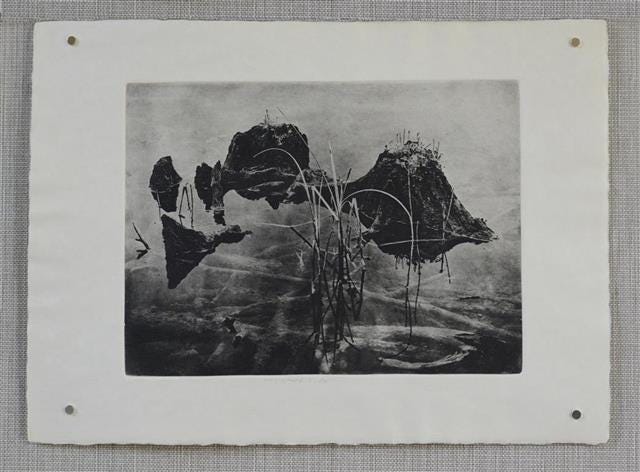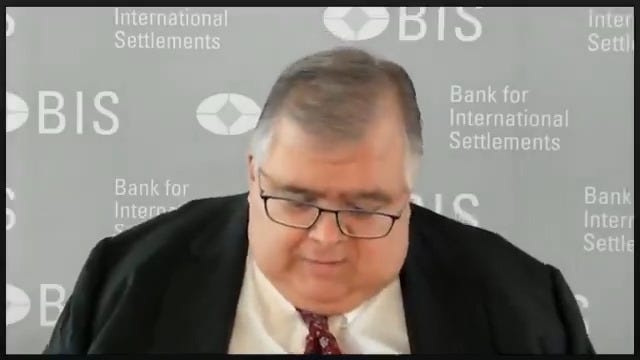
This other Eden, demi-paradise, This fortress built by Nature for herself Against infection and the hand of war, This happy breed of men, this little world, This precious stone set in the silver sea, Which serves it in the office of a wall, Or as a moat defensive to a house, Against the envy of less happier lands... — William Shakespeare, The Tragedy of King Richard the Second, Act II Scene I
In the waning days of the British Empire, a group known as 'Little England' advocated divestiture of colonial possessions and global entanglements. Britain itself, 'this precious stone set in a silver sea', was for them all the world they needed. As the 1857 Sepoy Rebellion in India made clear, maintaining a global empire entailed ever-increasing costs, and worse, shifted the domestic balance of power toward imperialist bullies forever seeking new conquests, and taxing their fellow-citizens to pay for them. Little-Englanders sought to end all that and concentrate their efforts at home.
Island nations like Britain and Japan often in their history wish to be left alone; yet they seek resources, wealth, and markets in the rest of the world. Japan shut itself off from the outside world for two-and-a-half centuries before being forcefully pried open. Whereupon it embarked on overseas conquests that did not end well. Currently these competing desires play out in dramas enacted in Japan's dealings with foreign (meaning non-Japanese) companies, capital, and executives.
One such case involves block trades — transactions in large numbers of shares — by SMBC-Nikko, the third-largest stockbroker in Japan. As the hyphenated name suggests, Sumitomo-Mitsui Banking Corporation, itself an affiliate of two of the largest zaibatsu trading companies, and Nikko Securities, the descendant of a firm founded in the early 20th century, have undergone multiple reorganizations and changes of ownership. Their job, like that of all financial firms, is fund-raising — shepherding the distribution of corporate shares to investors large and small, so that share-issuers have working capital to grow their operations, and people and institutions with funds to spare can obtain income or additional capital.
Because selling large numbers of shares all at once can depress share prices, block trades are often done after-hours privately, with the price negotiated in advance. Stock trading firms may also purchase some or all of these shares for 'market stabilization' purposes, that is, to prevent excessive price movements. These common finance industry practices enable companies to acquire working capital quickly and efficiently.
SMBC-Nikko's block trades caught regulatory attention because the company traded on its own account on both the sell side and buy side of the ledger. It may also have placed large buy orders for shares in individual stocks in April 2021 before selling those shares. Traditionally a broker acting as neutral middleman brings sellers or stock issuers together with buyers or investors, and is compensated by a percentage of the transaction value, without itself taking part in the transaction. However, being in a position to know — or even influence — the buy-sell spread can prove tempting for a nominally neutral broker to seek a piece of the action for itself. Conflating the market-stabilizing function with profit-seeking on its own behalf is one of those grey areas of finance that could be negotiated informally with regulators; but that wasn't done in this case.
Though stock-brokers are permitted to trade with their own funds on their own account, mixing such trading with their market-stabilizing role apparently caught the regulators' attention. Japan's Securities and Exchange Surveillance Commission (SESC), probably believing SMBC-Nikko was influencing share prices excessively in its favor, launched an investigation into possible 'market manipulation' in November 2021. Yomiuri reported that SMBC-Nikko's profit on block trades of 10 stocks in 2021 amounted to 1.1 billion Yen (about seven million Dollars).
Whether this was excessive in relation to trading by other brokers is not clear. Intensive questioning led to the heart-attack death of an SMBC-Nikko trader; according to one participant, this tragedy precipitated prosecutorial action. On March 4, 2022 prosecutors arrested four senior SMBC-Nikko executives for buying 320,000 shares of car-headlight maker Koito in December 2019, allegedly to prop up its stock price. On March 24, 2022, an additional executive was arrested, and all five were criminally charged. Further criminal charges were filed on April 13, 2022.
Of the five executives charged, three are Japanese, two foreign. A Court imposed a fine of 700 million Yen $4.8 million) and additional penalty of 4.47 billion Yen ($30 million) on SMBC-Nikko on February 14, 2023. Despite profuse apologies by the arrested executives, prosecutors asked at a hearing on March 6, 2025 for multi-year prison terms for the SMBC-Nikko executives, including two foreigners.
A verdict is expected in July (2025), which if innocent the prosecutors may and very likely will appeal. Some have observed that in regard to the foreign defendants, this prosecution sends a clear message that foreign financial talent is not wanted in Japan. They assert that depriving Japanese finance of their creative talent could weaken Japan in international competition, and prevent Tokyo from becoming a global financial center.
As to the possibility of being deprived of foreign financial talent, there may be some in Japanese finance and officialdom whose reaction to that prospect might be 'You promise?' The intensive investigation, arrest, incarceeration, and three-year trial delay, likely to be extended by prosecutors' appeal of an innocent verdict, may be exactly the message they wish to send to foreign financiers: 'Stay away'. And for Tokyo to become a global financial center, the Yen would have to become an international currency. A glance at the fate of the Dollar and its deeply indebted issuer (the United States Government) makes the downside of that world-currency status obvious. There is more at stake here than financiers' careers.
Japan is haunted by the stagnation wrought by its own finance industry's orgy of speculation in the late 1980s (precipitated by the U.S. Government's extremely ill-advised devaluation of the Dollar, in futile hope of stimulating U.S. exports). Japanese finance abandoned its role as a neutral allocator of capital and went into a froth of asset-churning. Such gross abuses of trust occur periodically: They drive business cycles. Confidence evaporates, credit dries up, the economy shrinks or stagnates, ordinary people experience hard times in their lives, and young people's expectations shrivel. Japanese officials fear above all any recurrence of rampant 'zai-tech'. They seek steady growth without the razzmatazz.
The purpose of a financial system is to allocate capital to where it can productively be used. It's an intermediary. But the financial system also does something that is not generally understood -- it creates credit, that is, it creates money out of thin air. Banks lend out ten times what they actually have in-house, and securities issuers grant themselves access to capital far in excess of their firms' book value. That's how a modern economy works and grows. It's a responsibility of enormous trust. When that trust is abused, as it is periodically, confidence evaporates, credit dries up, and real suffering occurs as incomes stagnate or decline.
A run on the bank occurs when depositors lose confidence that 'their' deposits can ever be redeemed. In panic mode, they don't understand that the full contents of 'their' bank account don't really exist. Recall the movie What a Wonderful Life, where small-town bank owner George Bailey (Jimmy Stewart) tries to explain this banking principle to depositors.
His bank's reserves plunge below the required percentage, and bank examiners arrive to shut it down. Whereupon his friends all pony up to support George's bank, it's Christmastime, and even the scrooge-like bank examiner makes a contribution. Unlike George Bailey, the real-life owners of Silicon Valley Bank didn't have any friends, since they catered mainly to the very rich, who quickly withdrew their funds at the first sign of trouble. Investors in the crypto empire of the eponymously named Sam Bankman-Fried (you can't make this stuff up) were not so swift — they lost billions of Dollars.
For any financial innovation to be worthwhile, it must help the financial system allocate capital better -- more productively, more efficiently, more attuned to stable steady growth. The test is not whether it produces higher fees for bankers, or, as with some derivatives, packages and sells an incomprehensible product of questionable value.
The fundamental wisdom of the Japanese system is that — except for occasional episodes of frenzied speculation — it does not regard finance as an end in itself. It's merely a means, an intermediary, to serve larger ends. That's why boosting finance to where it gets a third or more of total corporate profits, as in the U.S. and UK, does not benefit anyone other than financiers. Financialization causes industry and business to lose touch with production know-how, research/development, and innovation. It substitutes a metric (currency accumulation) for real wealth. Banks do legitimately create money out of thin air, but only to fuel commerce, industry, livelihoods, and future prosperity.
While 'creating money out of thin air' is OK for banks in general that are dealing with a finite money supply, extending this principle to faith-based currency printing is another matter altogether. The U.S. Federal Reserve, despite its name, is not constrained by any reserve requirement. The Federal Reserve is actually a consortium (some would say a cabal) of private banks, to which Congress a long time ago delegated the authority to print currency, apparently without limit. The nature of the Fed's 'creating money out of thin air' is fundamentally different from that of a private bank extending credit to a borrower. The Fed has been exploding the money supply without any corresponding increase in production of goods and services, merely to support the Federal Government's out-of-control spending and debt. This is a recipe for runaway inflation and bankruptcy. There is a world of difference between banks' legitimate credit creation on the one hand, and the U.S. Treasury's unaccounted-for disbursements along with the Fed's uncontrolled currency printing, on the other hand. Treasury officials themselves have characterized the $1,000,000,000 per week payouts, devoid of identifiable recipient, expenditure category, purpose, or legislative authorization or appropriation, uncovered by Elon Musk's DOGE team as 'obvious, unequivocal fraud'. Ordinary people have been experiencing the resulting hidden tax on their incomes, in the form of higher prices accompanied by stagnant wages and salaries.
There is a built-in conflict-of-interest between the societal role of finance as market-maker and credit allocator, versus the natural profit-seeking activities of a trader. Entrusting both these roles to the same organizations risks their exploiting public trust for private gain. Every society has these built-in role conflicts. The U.S. and the UK have 'resolved' them by delegating the market-making role to private finance, via central banks and regulators, trusting that financiers will act for the common good. The record shows that given the opportunity, bankers will favor their own interests over the common good (surprise!). The bankers' current push for Central Bank Digital Currency (CBDC) will, if realized, give them, in their own words, 'absolute control' of all private transactions.
Here is the digital-finance future presented by Bank of International Settlements General Manager Agustin Carstens:
'With cash, we don't know who is using the $100 bill today, we don't know who is using the 1,000-peso note today. The key difference with the CBDC is the central bank will have absolute control...'
That would enable central control of travel, food purchases, medical care, education, public assembly, speech, and so on, making access to these subject to ideological conformity, forced vaccination, or whatever a tyrannical regime might require.
Perhaps, one may hope, Japan does not wish to buy into this program. Whether or not SMBC-Nikko manipulated the stock market in violation of the Financial Instruments and Exchange Act, it would be preferable to clarify the credit allocation and profitable trading roles through negotiation rather than having the allowable overlap determined by criminal prosecution. Leaving finance to its intermediary role will let bankers do their job of creating and allocating credit, without granting them an outsize share of the profit of an entire economy, and without imposing central-bank control of private transactions. By adapting the 'Little England' approach to international finance, renouncing global ambitions, Japan can, as it has often done, selectively innovate for domestic purposes and discard what is useless or threatening; becoming, if not 'this other Eden, demi-paradise', at least a land where financial common-sense guides money and credit.






